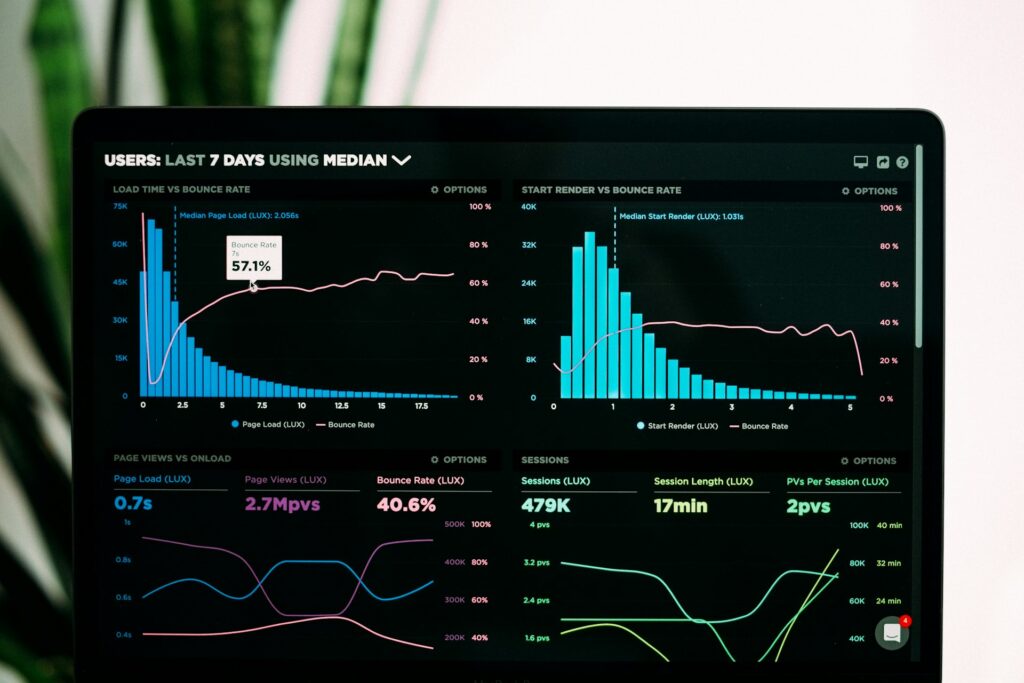Businesses leave behind more of a digital footprint than ever before. Every application generates and stores enormous amounts of information. Businesses that are able to take advantage of these numbers not only outperform the competition, but they also operate more rapidly and efficiently than they would otherwise. Data as a career is currently in a renaissance. There are millions of jobs open all over the world, making this a decidedly seller-oriented market.
What’s more, it’s a skill for which virtually any business will have a need. Not just tech companies, but retail, finance, healthcare, entertainment, and even non-profits. If you are interested in a skill that can open doors at virtually any major organization on the planet, data is a great place to start.

Why Every Industry Runs on Insight
While there could be, and for that matter have been, books written to answer that very question, the shortest answer is something like this. Data helps companies move quickly and more accurately. It’s through data that companies like Amazon can make automated product recommendations and that healthcare organizations can identify risk and optimize processes. It’s how marketing teams figure out high ROI opportunities and double down on them. It’s how manufacturing companies reduce the risk of equipment failure. We could keep going, but you probably understand the point.
Every task in business comes with its own set of information. Understanding what those numbers say and optimizing processes accordingly is an enormously valuable skill that literally any organization could benefit from. Where once executives were relying on intuition and experience, they now have numbers to confirm hunches and optimize decision-making.
Why Data Careers Are Worthwhile
We already described how businesses use data to accelerate their processes and save time and money. Great for them. What can data do for you? Let’s look at that question from a strictly financial perspective to start.
Data analysis careers begin in the upper five-figure range and can easily evolve into mid-six-figure salaries as your career advances. Remember that this is a job that can be done from pretty much anywhere.
As a naturally remote-oriented career path, you have options at companies all over the globe. This geographic flexibility makes it much easier to explore all of your career options and choose work that aligns with both your salary expectations and your lifestyle requirements.
Also note that many intelligence analysts develop freelance or consulting firms that can supplement or even replace their employer-backed income. Keep in mind that data is something nearly every business in the world is trying to leverage in some way. The skills you develop through a data analysis education apply just as easily in big tech companies as they do in small home service businesses. That means you’ll have a wide range of career options—and, if you’re entrepreneurial, plenty of opportunities to build your own business later on.
There’s also a strong culture of continuous learning in this field. Many employers actively encourage you to keep advancing your knowledge. In fact, it’s common for established companies to cover the cost of additional certifications, conference attendance, and even graduate-level coursework. This not only makes you more valuable in the marketplace but also allows you to keep growing without footing every bill yourself.

Data Work is Creatively Satisfying
Technical careers often have a reputation for lacking creativity. It’s true that data analysis is designed to identify an objective reality, at least to whatever extent that’s possible in a probability-based field. However, there is a lot of room for interpretation and analysis. Data professionals are, at the end of the day, detectives — even storytellers.
By looking at numbers, they might help write the story of why consumers buy this and not that, what factors contribute to partner abandonment, and what elements create higher conversions. In healthcare settings, the story might be why some people resist vaccines or what components lead people to dangerous behaviors like overeating or smoking. Technical skills are absolutely a core element of the job, and so are communication, problem-solving, and deduction.
It also helps that your responsibilities evolve with time. Data analysis has changed so much over the last twenty years, and it’s undergoing its most dramatic transformation right now with the introduction of artificial intelligence. There’s always something new to learn, making this career path a good option for people who want continuous engagement.
Educational Pathways
As we mentioned earlier, data careers typically focus on continuing education. However, the actual way in is often varied. Many data professionals begin with an entirely unrelated degree. You can get your foot in the door through STEM-related undergraduate programs, but if you’re going the graduate school route, it doesn’t necessarily matter what you major in.
At the bachelor’s level, sometimes majoring in something like psychology, philosophy, or business can give you a unique insight that wouldn’t otherwise be possible with a strictly mathematical educational background. And because you can often enter graduate programs with virtually any bachelor’s degree, this helps provide a more well-rounded foundation.
You can also develop your skills independently through professional certifications like Google Data Analytics, Microsoft Certified Data Analyst, or AWS Machine Learning. These programs are available to anyone with the ability and discipline to complete them. Indeed, holding a graduate degree in data analysis is probably the most effective and streamlined way to secure a high-paying job. However, this is definitely a career path where employers focus more on what you know and can do than on the credential itself.
Conclusion
Data-driven careers are high-impact, high-paying, and deeply rewarding. The key? Figuring out the path that makes the most sense to you. Getting a degree is certainly the most streamlined and efficient way to build a career in data, but there are also many different ways to reach the same destination. It’s a fulfilling and highly in-demand field that will only grow in relevance in the years to come. Take the first step toward this rewarding work today.
About the Author
Ryan Ayers is a researcher and consultant within multiple industries, including information technology, blockchain, and business development. Always up for a challenge, Ayers enjoys working with startups as well as Fortune 500 companies. When not at work, Ayers loves reading science fiction novels and watching the LA Clippers.
Leave a Reply